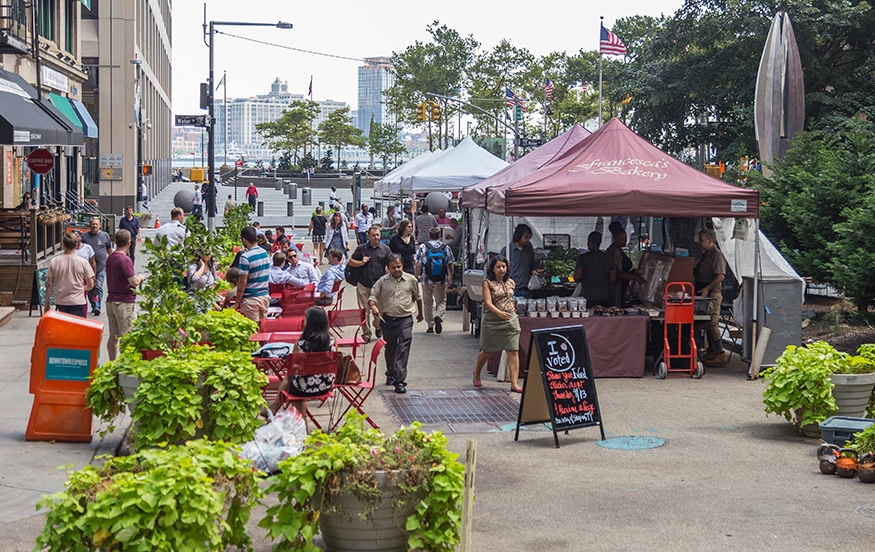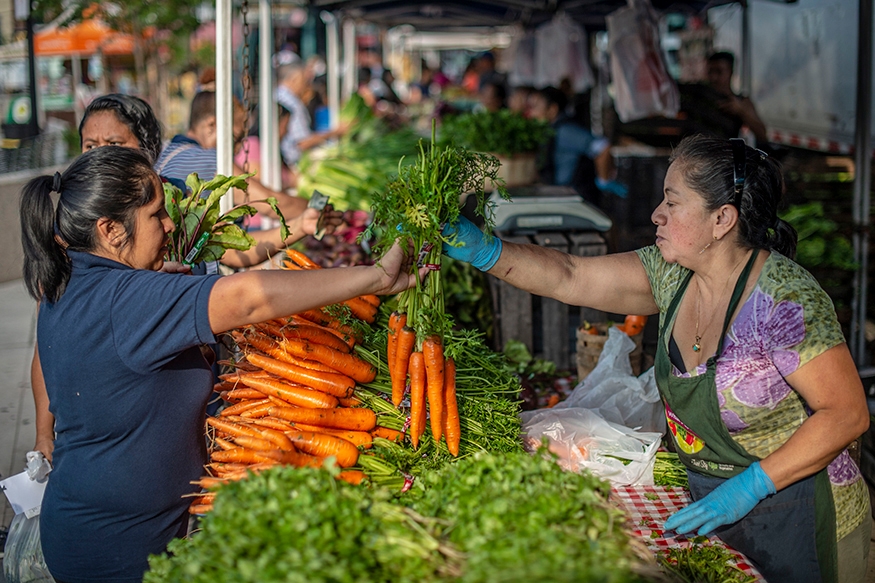Farmers markets are open-air markets where products grown, raised, caught, or baked by local farmers and fishers are available for sale to the general public. Farmers markets provide the public with fresh and nutritious food and offer alternative venues to farmers for sales aside from wholesalers and other large-scale sellers. This page addresses farmers markets held on public sidewalks permitted by SAPO; for information on holding a farmers market within or adjacent to city parkland, see Parks’ Farmers Market Permits resources.

Coenties Slip, Manhattan

Roosevelt Avenue and 103rd Street, Queens
Benefits
- Provides access to fresh and nutritious food
- Promotes healthy lifestyles
- Supports regional agriculture
- Encourages pedestrian activity
Scope and Eligibility
- For farmers markets permitted by SAPO, only sidewalks may be used; streets cannot be closed
- Parks issues permits for farmers markets held adjacent to city parks
- There is no minimum or maximum duration
- Must be organized by members or staff of a documented nonprofit
- All farmers should be licensed by the New York State Department of Agriculture
Process
- Application due to SAPO 60 days prior to event
- A $15 fee is charged per day
- Applicants, even existing markets, must re-apply each calendar year
- Applicant must provide commercial general liability insurance in the amount of $1 million per occurrence naming the City of New York as an additional insured
- Additional permits or insurance may be required (e.g., food giveaways require a permit from DOHMH)
Recommendations and Best Practices
- Establish a steering committee comprised of members of the community to carry out initial research, cultivate objectives, and oversee market formation; include farmers, local business owners, consumers, and local city officials
- Survey local consumer interest in a farmers market with questions on desired products, past purchases at farmers markets, suggested locations of markets, and potential days of service; provide similar surveys for local farmers on potential products, level of interest in participating, space requirements, desired rent schedules, and potential days and seasons of service
- Garner support from local businesses and present the farmers market as a potential economic benefit rather than a competitor in the sale of goods or services
- Select a site that provides space for future expansion, and that is in close proximity to parking for participating farmers, lighting, electricity, public restrooms, and other amenities; ensure accessibility and adequate mobility
- Evaluate the farmers market’s seasonal supply of goods, consumer or seller concerns, and consistency of customer presence to improve and develop the market
- The farmers markets and vendors must abide by all DOHMH food handling requirements and regulations

Roosevelt Avenue and 103rd Street, Queens

